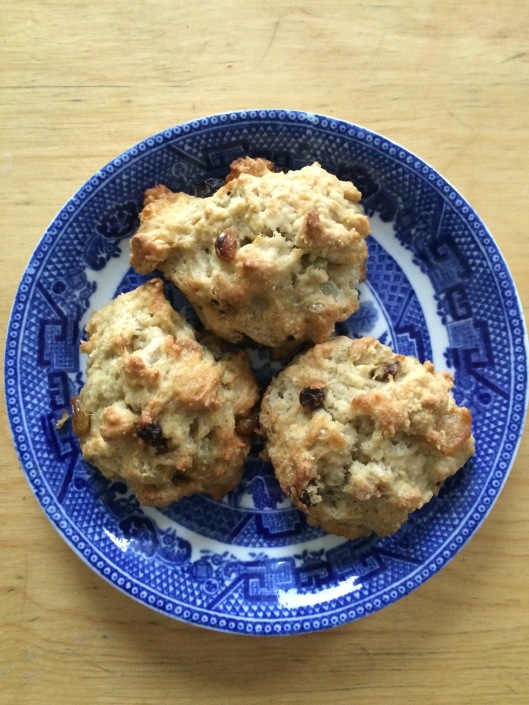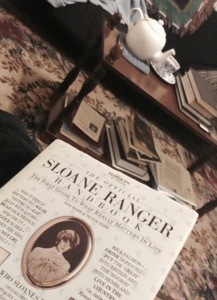The sun is out, cheerfully glittering through the large bay window of the coffee shop. I sit next to this translucent pane, but I cannot rely on its warmth. Even though I sit in its beams, I am enveloped in a coldness. My skin chills because of the air conditioning and my heart freezes in anticipation of what I must do. I take a sip from my teacup, full of green tea—yet, the warm, antioxidant-rich liquid does nothing to melt my current mood.
My phone lights up. A new text message flashes across the screen:
WHERE R U?
AT THE COFFEE SHOP. (I reply)
DID YOU DO IT?
NO. HE’S NOT HERE YET. 😦
OH. OKAY. YOU’LL BE AWESOME.
THANKS 🙂
DOES THIS MEAN THAT I WILL FINALLY GET TO SEE YOU LATER?
OF COURSE!!!!
OH WIE IST DAS SCHÖN 🙂 🙂 🙂
And now, I’m blushing. It would seem that both on and off the football pitch, Germany never fails to be accurate, direct, and poetic. Qualities I am growing fonder of daily.
“Who are you talking to, love?”
I swiftly turn off my phone and look up into the Personification of England’s National Football Team’s face. Even after 200 years, one can still admire his square jaw and ruddy good looks—all framed by a mighty display of mutton chops: wide, hairy, and uber-Victorian. He’s the sort man who looks like he will take one for his team, his nation, with as little complaint as possible. But, there are shadows under his eyes and his square jaw, usually so set, seems to tremble.
“A friend of mine.”
I get up to give him a hug. We embrace, he goes in for a kiss, and I dutifully offer him my cheek. He studies me, his brow creased in puzzlement and slight worry.
“How are you, Darling?”
“Oh, well enough. I’ve had a good day so far. And you?”
England sits down opposite me, with a heavy sigh. Though he appears to look all Stoic and Manly in a public school sort of way, he is not above feckless self-pity these days. “Well, I’ve been much better. The World Cup has been very disappointing for me. I didn’t even make it to the Round of 16.”
“Yes, I know that. I’ve been following your matches.”
“…And what did you think? About the matches?”
“Well, I—”
“Oh, I know what you thought. We didn’t deserve to lose as we did. We played technically sound games, but just didn’t get the breaks that we needed. We invented and regulated this damn sport, so we do know a thing or two about how it should be played!”
I look down into my teacup, remembering how England had a hard time keeping up with agile Italy or containing goal-keen Uruguay.
“Well, I—”
“Anyway, I do beg your pardon. You wanted to speak with me and here I am moaning. I was rather surprised that you wanted to meet up on a non-match day. It seems odd for us to hang out in a coffee shop rather than a pub.”
I grip my teacup a little tighter. “About that…England, you and I have been together for the past twenty years. And I’m grateful for that time. But, I think it’s time for me to start supporting other football teams. I just wanted to let you know my intentions.”
England is silent, sullenly staring at the table. I wait as England considers the full implications of my words, silently hating myself for having to do this to a once great Personification of a Football Team.
England looks at me from across the tables. His eye circles seem darker now. “Why? As you said, you’ve been with me for the past twenty years. We’re practically a tradition.”
“And you do like your tradition, don’t you England?” I let go of my teacup, it teeters shrilly in its saucer.
“Why yes I do. Don’t you, Sarah?”
My head snaps down.
“Sarah?”
I must be careful with my words.
“All throughout the 1990s, yes, I did like a bit of good old English football, huffing and puffing against the odds and the rest of the world. But, I’m changing England. I need a different sort of football these days. Something more creative, more technical, more cosmopolitan.”
“Why?”
“There seems to be a beautiful sort of balance to that sort of play–simultaneously studied and creative. It brings me joy. It’s the place where sport becomes Art.”
“I’m studied and creative.”
“No my dear, you are not. You are conservative, unimaginative, and slow to read the set plays of your opponents. And instead of doing anything constructive about your incompetence, like finding better ways to play football, you whine about it.”
England is again silent. Surely my pointed comments further bruised his already tender ego. I longingly think of my darkened phone, wondering what time it is, hoping that this interview will soon be over, but knowing that is wishful thinking. Like one of England’s games, it will drag on and on with excruciating pain. But, for one last time, I shall let that happen. We two have been with each other for the past twenty years, after all. I watched as he muscled through the nineties with versatile talents like Michael Owen, Owen Hargreaves, and David Beckham. So talented and mesmerizing to watch, but prone to injury, mediocrity, and red cards on the world wide stage. I was with him through the disappointments and the further disappointments and the further, further disappointments, never thinking I was wrong, or, that I was improperly investing my football watching time.
“Sarah, is it the U.S.A.?”
“What?”
“Are you leaving me for the U.S.A.?”
“No…”
“Oh, I know. It’s Germany. I’ve long suspected that you have a secret love for beautifully bearded German men.”
“Wait. What? No. I don’t pick a team to cheer for due to the presence of facial hair. If we were using that logic, I’d be all over Spain.”
“Are you?”
“No! Did you see their first game? It was terrible.”
“I bet it’s Germany. You’re leaving me for Germany.”
Ugh. I should’ve known he’d get like this. I want to be honest, but I don’t want to deal with his emotions.
“And if I were?” I ask in what I hope is a fairly neutral tone.
“I’d feel a bit betrayed. Germany’s lame. We beat them in them during the War, you know.” England brightens, “Wait. I know how I can fix this whole bloody awful mess. Do you want to see a picture of me in my RAF uniform? I looked so handsome in my RAF uniform, much more handsome than any beautifully bearded German man running around a football pitch. I bet if you see me in my RAF uniform again you’d remember the good times and reconsider.”
“No.”
“I could bring back Michael Owen. Or, fish out my trousers and better manscape my mutton chops…”
“That’s okay.”
“How about my tweed blazer and pipe? I know you like it when I’m scholarly.”
“Oh God, no.”
I reach out and grab England’s hand. It’s hard to look into his pleading eyes. But I must have done with this. I have an evening and another football team to think about.
“My dear, dear Personification of a National Football Team, there is nothing to negotiate here. I must leave you. I am thankful that you invented this fine sport but, like mutton chops and RAF uniforms, that was a long time ago. Football is changing, and you not wanting to be part of that change makes you look isolationist, arrogantly entitled, and silly. I can’t cheer for that. For Pete’s sake, even the U.S.A. swallowed their pride and got a little more European. This is the first World Cup where we haven’t looked like horrible, self-aggrandizing jerks!”
“So you and me, it’s really over then?”
“I’m afraid so. I want to cheer for a team whose willing to play with the rest of the world.”
I stand up and begin to walk towards the door. I hesitate, turn around, and earnestly kiss England on the top of the head. I’ll miss him and the tradition he represents, but I definitely won’t miss the guaranteed disappointment and ill-humor supporting him brings.

Image found at: http://thedailydutch.co.uk/?p=184







